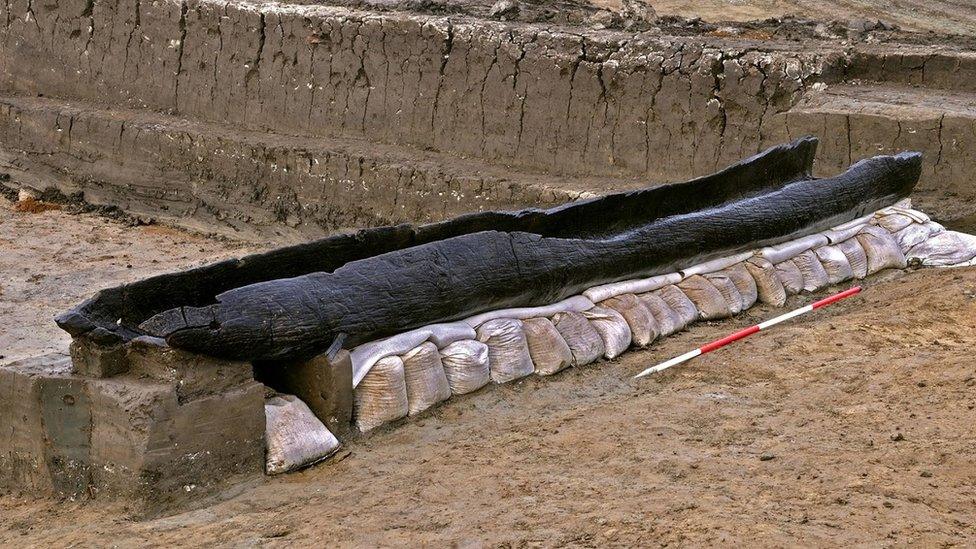Must Farm archaeologist excited by finds at 'UK's Pompeii'
- Published
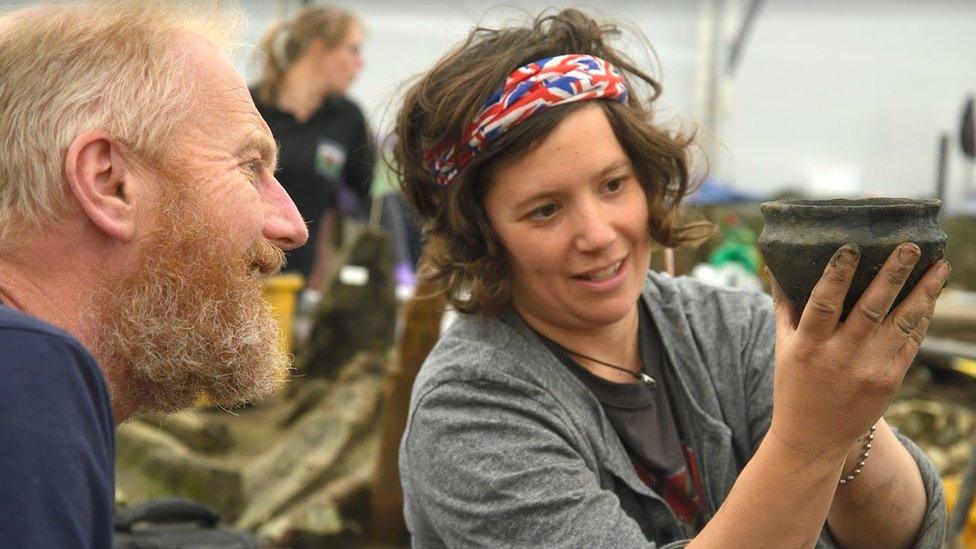
The Must Farm settlement is thought to have burnt down in 850BC
A prehistoric settlement dubbed Britain's Pompeii was occupied for less than a year before it burned down, leaving a wealth of well-preserved artefacts, an archaeologist said.
The finds were unearthed at a burnt-out 3,000-year-old village at Must Farm quarry in Whittlesey, Cambridgeshire.
The Bronze Age homestead could have been home to 50 to 60 people, the Cambridge Archaeological Unit said.
Archaeologist Chris Wakefield said the site was "an amazing time capsule".
The settlement is thought to have been made up of about 10 circular wooden houses on stilts situated above a river.
The village, which was discovered by Cambridge Archaeological Unit (CAU) between 2015 and 2016, was preserved along with its contents because it fell into river silt.
The cause of the blaze which destroyed it in 850BC is not known, but it could have been an attack or started accidentally and quickly spread between the closely packed homes, Mr Wakefield said.
The dig has drawn comparisons with the Roman city of Pompeii as it provides an insight into Bronze Age life just as the era was ending.
Environmental analysis has shown that the vegetation in the river helped to cushion the material falling from the structures, preventing damage.
The items landed beneath where they had been stored in the houses, giving archaeologists a direct insight into how the roundhouses were used.
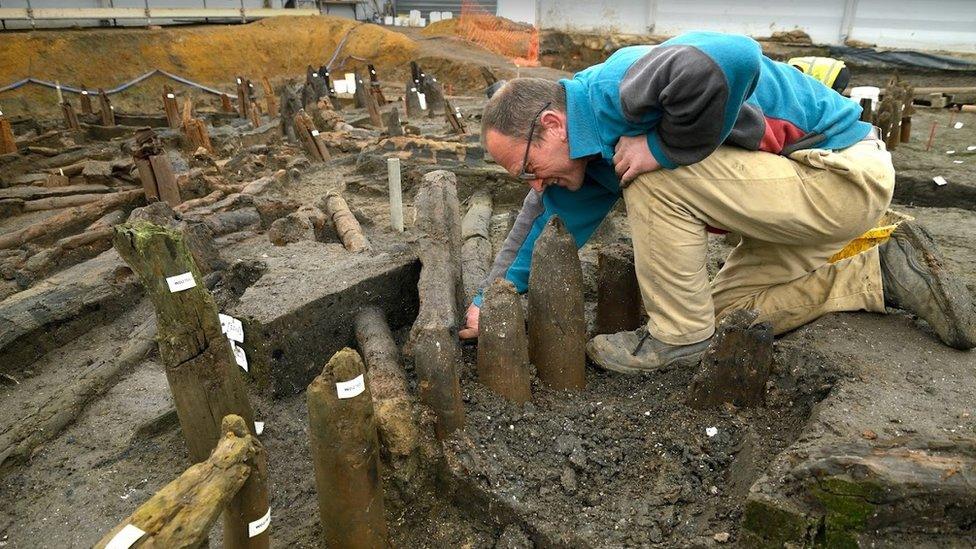
Some items from the dig will go on show at a local museum next month
The combination of charring and waterlogging caused thousands of objects to survive, including almost 200 wooden artefacts, more than 150 fibre and textile items, 128 pottery vessels and some 90 pieces of metalwork.
Some of the objects from the dig will be displayed in an exhibition at Peterborough Museum and Art Gallery from 27 April.
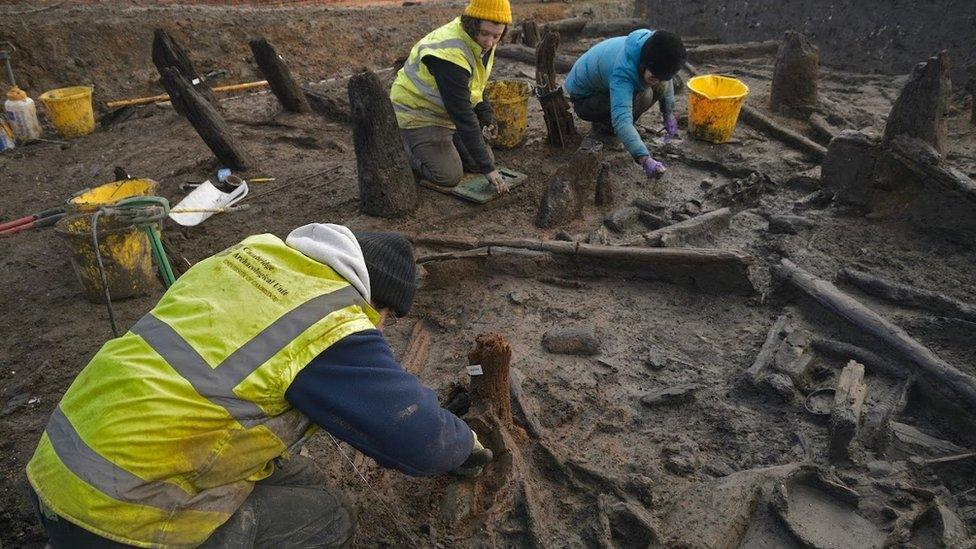
Archaeologist Chris Wakefield said the Must Farm site was "an amazing time capsule"
Mr Wakefield said: "I think people have this perception that everyone was struggling to survive, that it was a horrible, nasty time to be alive, and actually looking inside these structures shows they've got a very sophisticated level of technology that does everything that they need it to do.
"They've got axes that they've created, a bit like a multi-tool, that you can swap in different axe heads and use it really quickly for different functions.
"We've got pots that have been designed to be stacked inside one another, and this was well before the potter's wheel was invented, these were all hand-built."
Mr Wakefield described the project as "one of the most comprehensive investigations into a prehistoric site that's ever been done in the UK".
Details of the project have been published in new books following extensive analysis.
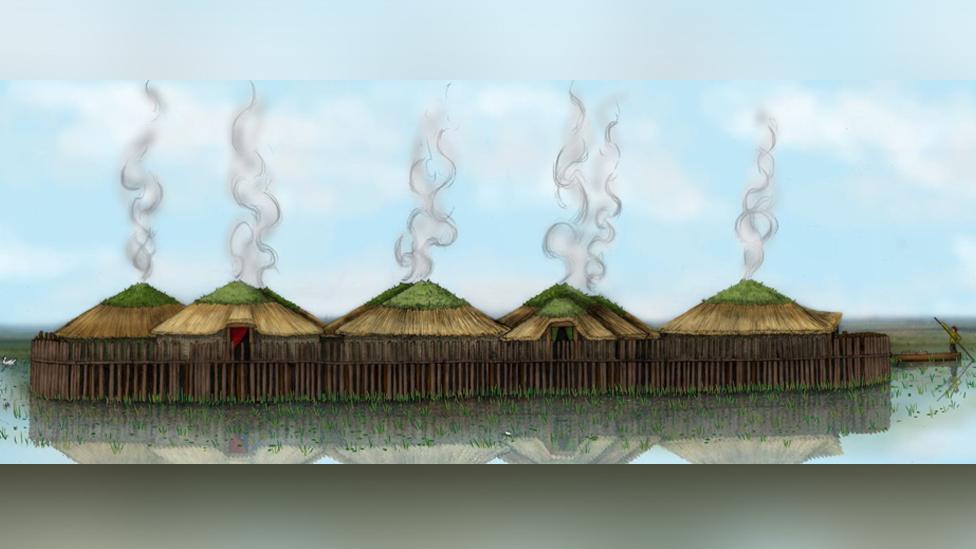
Archaeologists said the settlement was situated above a river

Find BBC News: East of England on Facebook, external, Instagram, external and X, external. If you have a story suggestion email eastofenglandnews@bbc.co.uk, external
Related topics
- Published9 March 2023
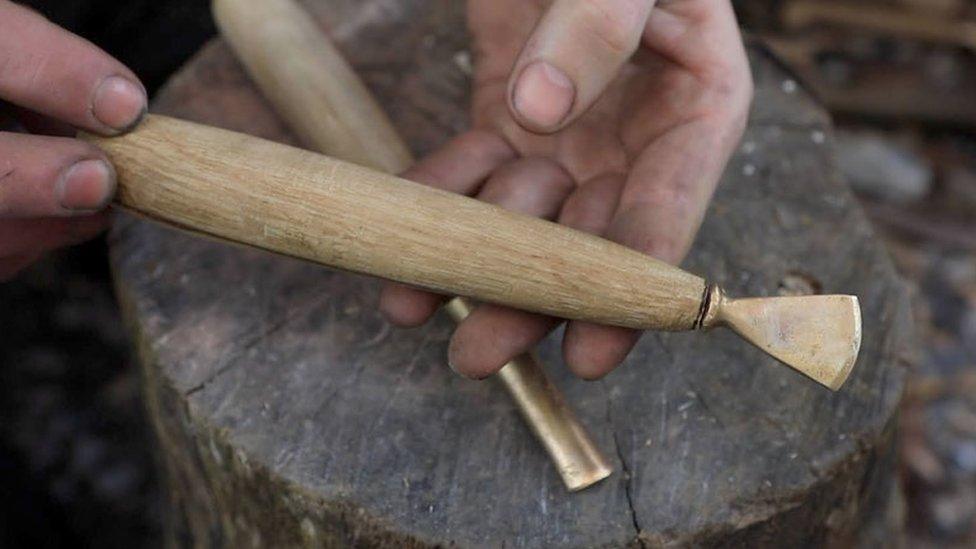
- Published26 July 2022
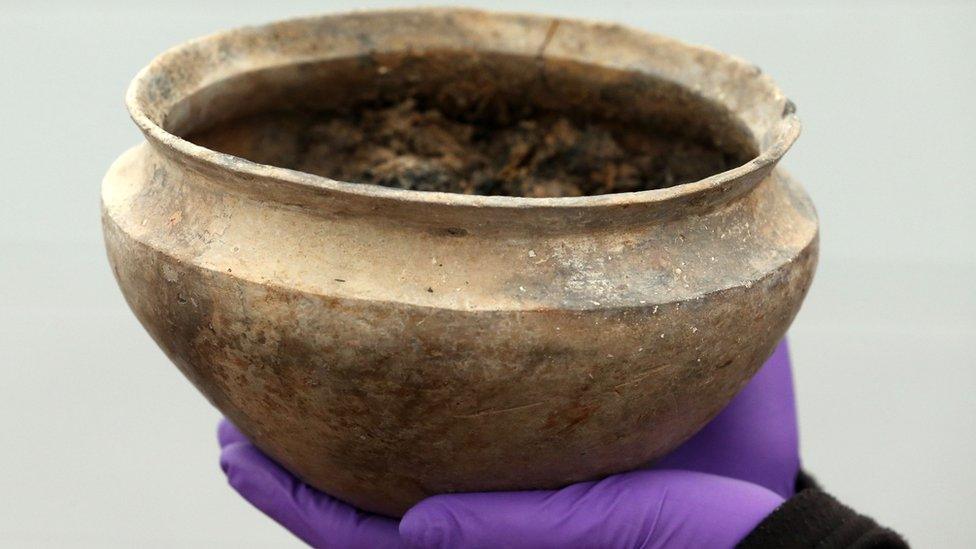
- Published24 March 2021
